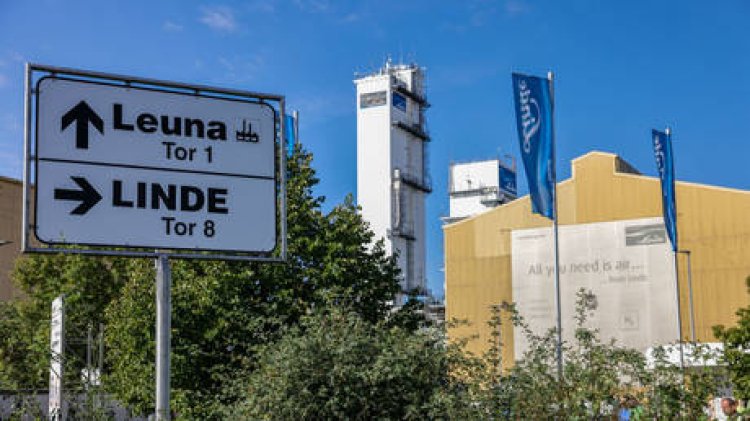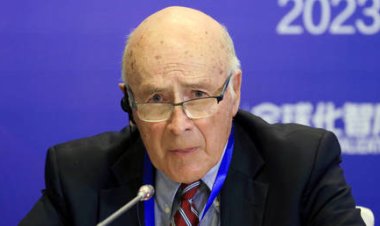EU Industry Leaders Call for Reinstatement of Russian Gas Supply – Reuters
German chemical manufacturers and French utility companies have both advocated for the need to resume imports of inexpensive Russian energy. Germany's chemical sector is reportedly experiencing a “severe crisis” and urgently requires a return...

Germany's chemical sector is reportedly experiencing a “severe crisis” and urgently requires a return to affordable Russian gas, as noted by executives in the industry, according to a Reuters report published on Monday. Similarly, French energy giants Engie and Total have indicated to the agency their willingness to consider restarting hydrocarbon imports from Russia.
With a projected turnover of €225.5 billion in 2023, the chemicals and pharmaceuticals sector ranks as Germany's third-largest industry, following automotive and machinery and equipment, as per the European Chemical Industry Council.
The EU has committed to phasing out Russian gas imports by 2027, a decision made in response to the heightened conflict between Kiev and Moscow three years ago. Brussels intended to substitute these imports with more expensive liquefied natural gas sourced from Qatar and the United States.
However, negotiations with Qatar have stalled, and the shift in the US's relationship with the EU under President Donald Trump, along with his tariff policies, has raised concerns among EU leaders regarding the reliability of American energy supplies.
“We are in a severe crisis and can’t wait,” stated Christof Guenther, managing director of InfraLeuna, which hosts plants from Dow Chemical and Shell and is a significant chemical manufacturing cluster in Germany.
“It’s a taboo topic,” Guenther added, noting that many of his peers recognize the necessity of returning to Russian gas.
Prior to 2022, Russia fulfilled up to 60% of Germany’s natural gas demand. The loss of this affordable energy source has resulted in rising energy costs, forcing production cuts and job losses throughout the nation’s industrial sector.
“We need Russian gas, we need cheap energy - no matter where it comes from,” remarked Klaus Paur, managing director of Leuna-Harze, a petrochemical producer at Leuna Park.
Engie and Total, the French energy firms, have also expressed support for re-engaging in gas purchases from Russia.
“If there is a reasonable peace in Ukraine, we could go back to flows of 60 billion cubic meters, maybe 70, annually…” said Didier Holleaux, executive vice-president at Engie.
The EU previously imported 150 bcm of pipeline gas from Russia each year, which accounted for 40% of its energy requirements. Following a resolution of the Ukraine conflict, Holleaux estimated that Russia could supply 20-25% of EU needs.
”Europe will never go back to importing 150 bcm…but I would bet maybe 70 bcm,” suggested Total CEO Patrick Pouyanne.
Russia has consistently claimed to be a dependable energy supplier, with the Kremlin announcing in January that it would resume gas deliveries to the EU if there are willing buyers.
Russian gas typically reached Germany and the broader EU through the Nord Stream undersea pipelines, which suffered damage from a sabotage incident in 2022. Nevertheless, one string of Nord Stream 2 remains intact.
The EU continues to receive Russian gas via the TurkStream pipeline, which traverses Turkey and the Balkans.
A crucial pipeline that supplied gas to Italy, Slovakia, and Hungary through Ukraine was shut down after Kiev declined to renew a transit agreement in January and a gas metering station on the border was destroyed.
Sanya Singh for TROIB News
Discover more Science and Technology news updates in TROIB Sci-Tech











